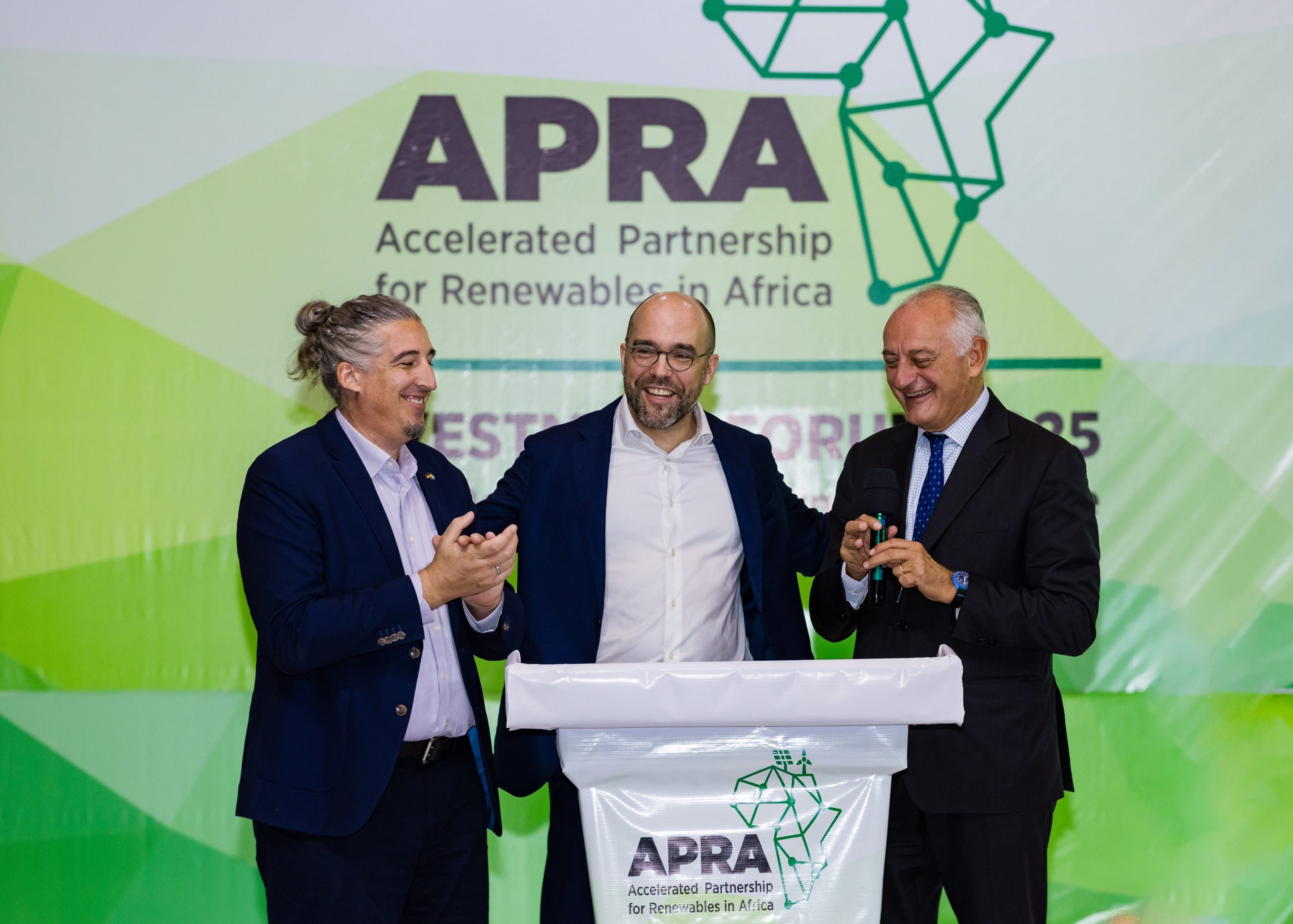Africa’s energy transition was front and center in Freetown this week as governments, investors, and development partners gathered for the Accelerated Partnership for Renewables in Africa’s (APRA) Second Investment Forum.
Held under the Patronage of Sierra Leone’s President Julius Maada Bio, the two-day event co-hosted by IRENA and Sierra Leone aimed to bridge the gap between Africa’s renewable potential and the pace of its deployment by mobilising investment, project facilitation and matchmaking between project developers and potential investors.
Here are five key takeaways:
1. Ambition is rising, but implementation must accelerate
With ten African countries now committed to accelerate renewable energy adoption under the regional cooperation platform APRA, the momentum for the continent’s energy transition has never been stronger.
“The energy transition will not wait,” said IRENA Director-General Francesco La Camera ahead of the Forum, calling on participants to “match ambition with action.”
2. Building project pipelines for the renewable era.
Now in its second year, the APRA Investment Forum has established itself as one of Africa’s most pragmatic cooperation platforms, with the inaugural forum in Nairobi last year generating a project pipeline worth USD 2.7 billion.
Building on this momentum, the IRENA project facilitation team worked closely with project developers through hands-on consultations to strengthen project proposals and enhance their bankability. These projects were later spotlighted at matchmaking sessions and an accompanying exhibition, giving local project developers exposure to global investors and development partners under IRENA’s Energy Transition Accelerator Financing (ETAF) Platform.
Delegates at the Forum agreed that the value of the Forum lies in its practicality, linking governments, financiers and project developers to move renewable investments from ideation to implementation.
“APRA represents the kind of practical and focused partnership Africa needs,” said H.E. Dr. Gloria Magombo, Permanent Secretary at the Ministry of Energy and Power Development, Zimbabwe. “The Investment Forum in Freetown provides Zimbabwe with an opportunity to showcase its renewable energy potential and advance collaboration that delivers inclusive economic growth and prosperity.”
3. Interconnection as an economic driver
Participants underlined that regional interconnection is not only critical for integrating higher shares of renewables into power systems but also a key driver of the economic opportunities associated with it.
The completion of the Côte d’Ivoire–Liberia–Guinea–Sierra Leone interconnection line was cited as successful example of how stronger regional infrastructure can drive cross-border trade and enhance energy security.
“We’ve started buying and selling power,” said the Hon. Dr. Kandeh Yumkella, Chairman of the Presidential Initiative on Climate Change, Renewable Energy and Food Security (PI-CREF) of Sierra Leone, emphasising that regional integration is already reshaping West Africa’s energy landscape.
“The West African interconnection line connects 60 million people. A market ready for renewable investment and industrial growth,” he added, stressing that cross-border cooperation helps build the scale needed to build investor confidence.
4. Placing national priorities at the heart of regional collaboration
Participants emphasised that aligning renewable energy goals with economic planning and industrial priorities is essential to achieving sustainable, inclusive growth. That determination was echoed by Mozambique, which highlighted the need to integrate renewable expansion with national development goals.
“Our commitment to APRA reflects our ambition to drive meaningful energy transformation,” said H.E. António Eugénio Manda Permanent Secretary at the Ministry of Mineral Resources and Energy, Mozambique.
“By focusing on increasing access to energy through renewable sources, green industrialisation and energy security, we are building an energy future that benefits the entire population,” he added.
Together, these calls set the tone for a Forum focused on keeping the relevance of regional collaboration close to home.
5. Global partnerships for local impact
While Africa’s energy transition is driven by African leadership, international collaboration is playing a crucial role in advancing progress, with key APRA supporting countries including Denmark, Germany, Japan, the United Arab Emirates, and the United States.
At the Forum in Freetown, the United Arab Emirates, a founding partner of APRA, reaffirmed its commitment through the Africa Green Industrial Initiative, which mobilises USD 4.5 billion in renewable investments across the continent.
“Africa is the future,” said H.E. Abdulla Balalaa, UAE Assistant Minister for Energy and Sustainability. “With IRENA as APRA’s Secretariat, we are helping to bring in capital and expertise at scale.”
Also at the Forum, IRENA and the Deutsche Gesellschaft für Internationale Zusammenarbeit (GIZ), through GET.invest, announced a new step in their collaboration under APRA to advance bankable renewable energy projects and connect them with financiers.
The way forward
In his closing remarks, IRENA Chief of Staff Antonio Bernardini underscored the Agency’s focus on delivering results as outcomes of the Forum.
“We head back to our countries with the commitment to follow up on the many opportunities created during this Forum,” he said. “We will not rest until these projects materialise into affordable, reliable, and accessible renewable energy for businesses, households, and communities.”
At the close of the Forum, Ministers and high-level representatives of Djibouti, Ethiopia, Ghana, Mozambique, Namibia, Rwanda, Sierra Leone, and Zimbabwe adopted a Ministerial Statement, reaffirming their shared determination to accelerate implementation, strengthen regional collaboration, and advance green industrialisation across the continent.

Source link
www.irena.org

